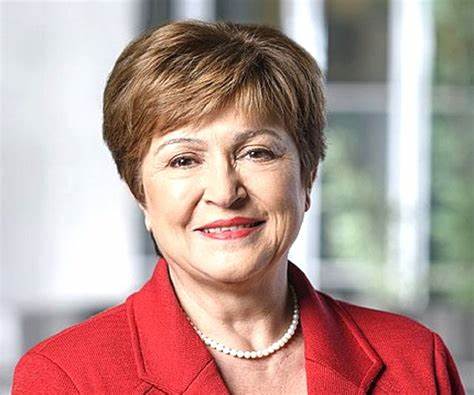Kristalina Georgieva, the managing director of the International Monetary Fund, has issued a warning about the potential for unanticipated “consequences” that could result from the use of digital currencies issued by retail central banks.
In an interview on May 1 at the Milken Institute’s 2023 Global Conference, Georgieva discussed her reservations regarding retail CBDCs.
The IMF’s chief stated that the organisation believed retail CBDCs had much more leeway than wholesale CBDCs.
She said, “We think that wholesale CBDCs can be put in place with fairly little space for undesirable surprises, whereas retail CBDCs completely transform the financial system in a way that we don’t quite know what consequences it could bring.”
Cointelegraph reported that whereas wholesale CBDCs are also state-backed virtual currencies issued by central banks but are intended to allow financial institutions to carry reserve deposits with a central bank, retail CBDCs are issued by central banks and are intended for use by consumers and businesses.
In order to ensure that best practises are adopted, the IMF MD said that the organisation was working with roughly 50 nations. She predicted that this collaboration will have a significant impact on banks and economies in the future.
The decision to produce a CBDC manual to assist central banks with CBDC design and implementation was made earlier by the IMF in response to the unprecedented levels of interest from countries all over the world.
Nigeria became one of the first nations in the world to create a central bank digital currency that is accessible to the general public on October 25, 2021, with the launch of the eNaira.
The Bahamas and the Central Bank of the Eastern Caribbean were also included on the coveted list by the most populous country in Africa.
The eNaira was introduced following four years of research, according to Central Bank of Nigeria Governor Godwin Emefiele, who made the announcement at the launch. The eNaira is a digital currency with naira as its unit of account that functions as both a means of exchange and a store of value, according to the CBN.
The CBN governor asserted that 33 banks had been effectively included into the eNaira network, and the central bank had issued N500 million to mark the launch of the new currency.
According to the regulator, N200 million had been given to financial institutions, and at the time of the launch, more than 2,000 clients had also signed up.
Once eNaira was operational, users could download the CBDC speed wallet app and merchant wallet.
The merchant wallet had 83,000 downloads as of December 2021, while the consumer wallet had over 583,000 from more than 160 nations.
The CBN governor revealed on Tuesday that as of March 31, 2023, there were around 1.4 million e-Naira transactions.
Emefiele, who was represented by Dr. Hassan Mahmoud, Director of Policy of the CBN, claimed that his team pushed the electronic payment channels by utilising COVID-19 and other local innovations.
He said, “The advent of the Corona Virus pandemic no doubt triggered rapid advancements in financial technology leading to speedy digitisation of money and finance.
“The CBN took advantage of the opportunity by launching the eNaira in October 2021. The eNaira was developed to broaden the payment possibilities of Nigerians, foster digital financial inclusion, with potential for fast-tracking intergovernmental and social transfers.
“Since its launch, the CBN has continued to modify its features to make it more accessible to a wide range of users.
“Today, one does not need a smartphone to use the eNaira as it has become compatible with all generations of mobile devices (old and new). Till date, over N1.4m transactions have passed through the eNaira platform.”





